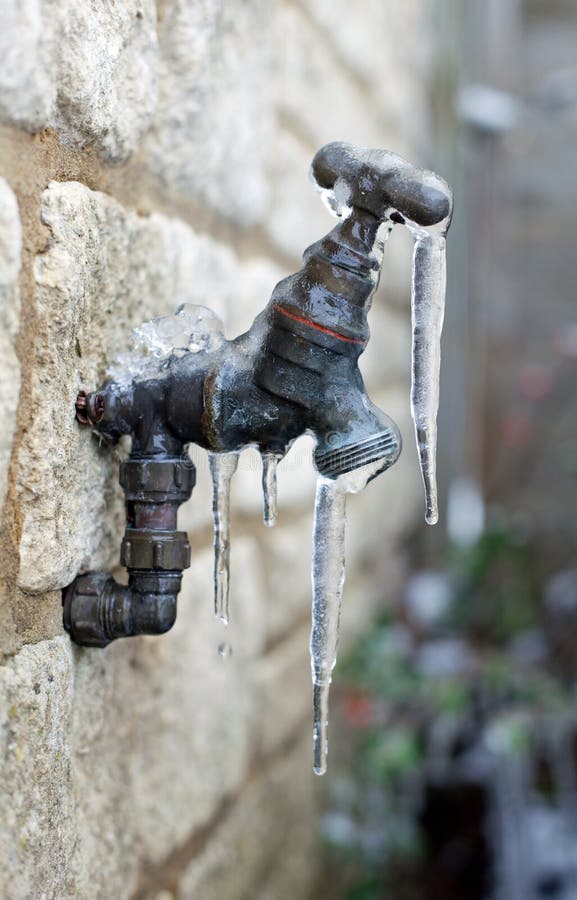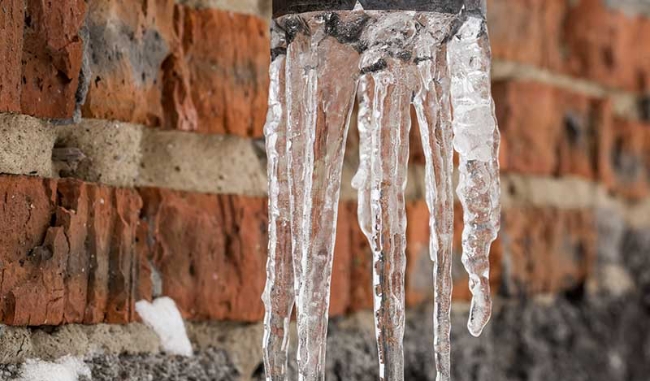Shielding Pipes from Freezing Damage: Essential Tips
Shielding Pipes from Freezing Damage: Essential Tips
Blog Article
Almost everyone seems to have their own unique way of thinking with regards to Winter Plumbing Precautions: Preventing Frozen Pipes.

Winter can damage your pipes, specifically by freezing pipelines. Below's just how to stop it from taking place and what to do if it does.
Intro
As temperatures drop, the danger of frozen pipes rises, possibly causing costly repairs and water damages. Comprehending how to stop frozen pipes is critical for house owners in cold environments.
Understanding Icy Pipes
What triggers pipes to ice up?
Pipes ice up when revealed to temperatures below 32 ° F (0 ° C) for expanded periods. As water inside the pipelines freezes, it increases, putting pressure on the pipeline walls and possibly creating them to burst.
Dangers and problems
Icy pipes can result in water disruptions, building damage, and costly repair services. Ruptured pipelines can flooding homes and trigger extensive structural damage.
Signs of Frozen Pipeline
Identifying frozen pipelines early can stop them from breaking.
Exactly how to determine frozen pipes
Search for decreased water flow from faucets, uncommon smells or sounds from pipelines, and noticeable frost on revealed pipelines.
Prevention Tips
Insulating vulnerable pipes
Wrap pipelines in insulation sleeves or utilize heat tape to shield them from freezing temperatures. Concentrate on pipes in unheated or exterior areas of the home.
Home heating techniques
Maintain interior rooms adequately warmed, particularly areas with pipes. Open closet doors to allow cozy air to flow around pipes under sinks.
Securing Exterior Plumbing
Garden pipes and exterior faucets
Disconnect and drain garden pipes prior to winter. Install frost-proof spigots or cover outside faucets with protected caps.
What to Do If Your Pipelines Freeze
Immediate activities to take
If you presume icy pipelines, maintain faucets available to soothe stress as the ice thaws. Utilize a hairdryer or towels taken in hot water to thaw pipes slowly.
Long-Term Solutions
Architectural changes
Think about rerouting pipes away from outside walls or unheated areas. Include additional insulation to attics, cellars, and crawl spaces.
Upgrading insulation
Invest in high-quality insulation for pipelines, attics, and wall surfaces. Appropriate insulation aids keep regular temperatures and lowers the risk of icy pipelines.
Conclusion
Stopping frozen pipes requires proactive measures and quick reactions. By comprehending the causes, indications, and preventive measures, property owners can protect their plumbing throughout cold weather.
Helpful Tips to Prevent Frozen Pipes this Winter
UNDERSTANDING THE BASICS: WHY PIPES FREEZE AND WHY IT’S A PROBLEM
Water freezing inside pipes is common during the winter months, but understanding why pipes freeze, and the potential problems it can cause is crucial in preventing such incidents. This section will delve into the basics of why pipes freeze and the associated problems that may arise.
THE SCIENCE BEHIND FROZEN PIPES
When water reaches freezing temperatures, it undergoes a physical transformation and solidifies into ice. This expansion of water as it freezes is the primary reason pipes can burst. As the water inside the pipe freezes, it expands, creating immense pressure on the walls. If the pressure becomes too great, the pipe can crack or rupture, leading to leaks and water damage.
FACTORS THAT CONTRIBUTE TO PIPE FREEZING
Low Temperatures: Extremely cold weather, especially below freezing, increases the risk of pipes freezing. Uninsulated or Poorly Insulated Pipes: Pipes located in unheated areas, such as basements, crawl spaces, or attics, are more prone to freezing. Insufficient insulation or lack of insulation altogether exacerbates the problem. Exterior Wall Exposure: Pipes running along exterior walls are susceptible to freezing as they encounter colder temperatures outside. Lack of Heating or Temperature Regulation: Inadequate heating or inconsistent temperature control in your home can contribute to frozen pipes. PROBLEMS CAUSED BY FROZEN PIPES
- Pipe Bursting: As mentioned earlier, the expansion of water as it freezes can cause pipes to burst, resulting in significant water damage.
- Water Damage: When pipes burst, it can lead to flooding and water damage to your property, including walls, ceilings, flooring, and personal belongings.
- Structural Damage: Prolonged exposure to water from burst pipes can compromise the structural integrity of your home, leading to costly repairs.
- Mold and Mildew Growth: Excess moisture from water damage can create a favorable environment for mold and mildew growth, posing health risks to occupants.
- Disrupted Water Supply: Frozen pipes can also result in a complete or partial loss of water supply until the issue is resolved.
WHY CERTAIN PIPES ARE MORE PRONE TO FREEZING
- Location: Pipes located in unheated or poorly insulated areas, such as basements, crawl spaces, attics, or exterior walls, are at higher risk of freezing.
- Exterior Pipes: Outdoor pipes, such as those used for irrigation or exposed plumbing, are particularly vulnerable to freezing as they are directly exposed to the elements.
- Supply Lines: Pipes that carry water from the main water supply into your home, including the main water line, are critical to protect as freezing in these lines can affect your entire plumbing system.
- Underground Pipes: Pipes buried underground, such as those connected to sprinkler systems or outdoor faucets, can be susceptible to freezing if not properly insulated.
https://busybusy.com/blog/helpful-tips-to-prevent-frozen-pipes-this-winter/

I'm very involved in How To Avoid Freezing Pipes and I'm hoping you liked the blog post. Sharing is good. Helping people is fun. Thanks a lot for taking the time to read it.
Call Today Report this page